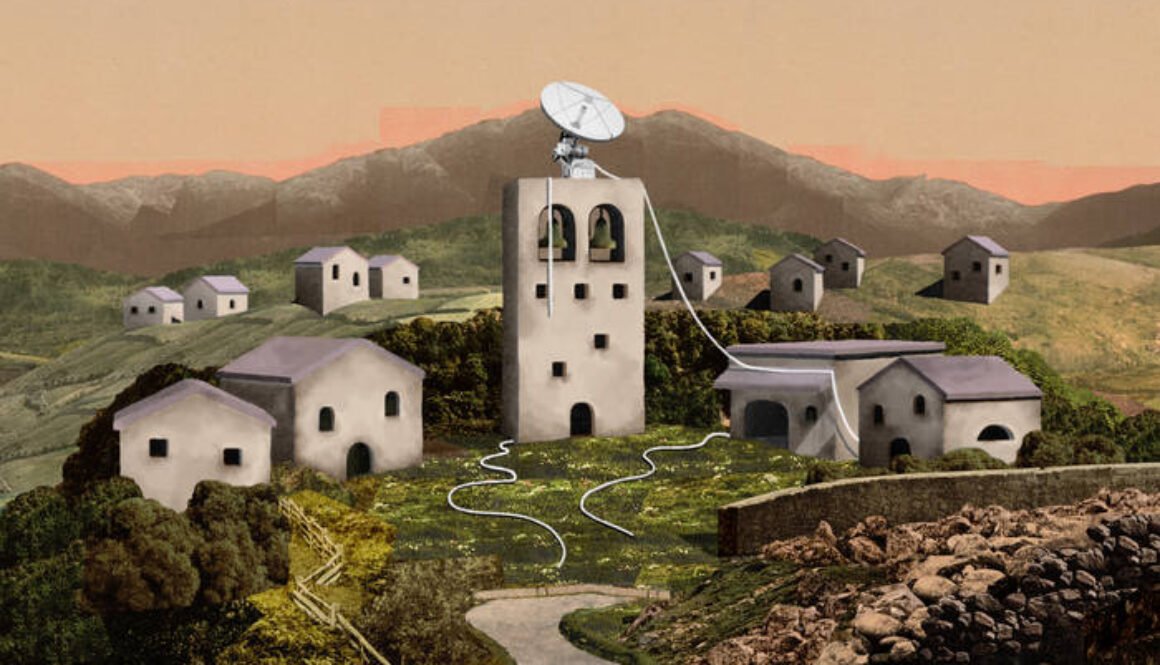lilien rosarian, “a day in bel bruit” (Self-Released, 2019)
This self-released 2019 debut from NY-based tape loop artist Lilien Rosarian has become something of an underground cult classic, but there is not a hell of a lot of biographical or background information available about her work. I do, however, know that Rosarian was still in college when she recorded this album and that she originally started off making instrumental hip-hop, but moved onto working with physical tape loops because she grew weary of staring at computer screens all the time (very relatable). Also, her brother Corey played all the instruments on the album and provided the cover art.
Unsurprisingly, the album details are similarly scant, but deliciously so, as it is fitting that such a singular and mysterious album would have a singular and mysterious premise at its heart. In essence, a day in del bruit is a vision of a single day in an imaginary abandoned village in which the sounds of the departed denizens have been replaced by broadcasts from a satellite dish haphazardly built on a bell tower. Notably, the inclusion of the word “haphazardly” is quite important, as this album is more like a Ligotti or Alisdair Gray-esque nightmare than magical realism, as the idyllic sounds of the town are often rendered grotesquely gnarled, gnawed, and convulsive by the mangled tape loops (the French “del Bruit” roughly translates as “of the noise” incidentally). In the world of the album, that satellite dish is NOT functioning at the peak of its powers.
Happily, there are plenty of genuinely beautiful passages to be found as well, but the brutality that Rosarian’s tape loops experience places her work light years away from anything I have heard from other tape artists. I am always a sucker for a good tape loop artist and Rosarian inventively shifts the focus away from the obvious pleasures of frayed textures and out-of-phase rhythms to evoke a demonically possessed tape machine that transforms the cheerful sounds of a bustling village into something unsettling and faintly sinister.
The album is roughly divided into two halves, as Rosarian envisioned the first half as daytime songs and the second as nighttime songs. The opening “theme for empty village” sets the mood nicely, as a squall of static gives way to a collage of gently smeared music box melodies, a chorus of happily singing birds, and the submerged, indecipherable voices of the happy non-existent villagers. That veiled vision of pastoral bliss is unnervingly precarious, however, as the sounds fitfully distort and curdle into considerably more nightmarish territory. It also sometimes sounds like two very different movies are bleeding into one another (one portraying a pleasant day at the carnival and the other portraying a tale of supernatural suspense from the 1940s).
Obviously, The Caretaker and William Basinski are the big reference points for frayed and decaying tape loop fantasias, but Rosarian’s vision reminds me much more of filmmaker Bill Morrison’s Decasia, which collaged badly oxidized silent film-era reels into a mesmerizing mindfuck of blistering, bubbling, warped, and solarized abstraction in which characters are regularly obliterated by streaks of corrosion or enveloping voids of blackness.
That said, pieces like the excellent “dead flowers still seem to smile” also feel like a compelling innovation upon Oval’s early work with skipping CDs, as it Rosarian’s loops often stammer in a state of suspended animation before abruptly lurching into the next passage, yet the stuttering loops are also continually warping and varying in both speed and pitch even within their imaginary locked grooves. Elsewhere, “the marketplace” is a very different type of highlight, as wistful piano chords and strummed acoustic guitars evoke a lazy, sun-dappled Sunday afternoon, but they also seem to be dragging a gnarly undercurrent of howling and murky chaos in their wake (and there’s even a surprise backwards coda to boot).
I am also extremely fond of “singalong in the village square,” which is a whooshing and churning maelstrom that suggests a collision of time-stretched roller coaster excitement and a goddamn hurricane. In fact, that piece is one of several prime illustrations of what makes a day in bel bruit such a weirdly beautiful and haunting experience, as Rosarian warmly and sentimentally evokes an enchanted mid-20th century rural village full of happy birds, chiming bells, carnival calliopes, friendly neighbors, and pretty music box melodies, yet proves herself equally adept at making that idyllic mirage fray and flicker to reveal glimpses of churning cosmic horror or sinister transmissions from space. If you have ever felt like you are living in a malfunctioning simulation, this is the fucking album for you. In short, this album rules. Rosarian has truly crafted one hell of a deeply immersive, timeless, and truly unique album and I do not expect to hear anything quite like it ever again (not even from Rosarian herself, as she opted for a much less disturbing vision with 2022’s every flower in my garden.
Listen here.

